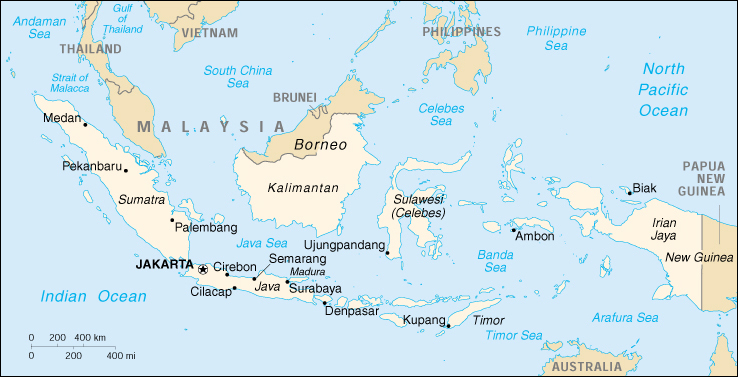
Status Quo Side: Netherlands
Non-Status Quo Side: Indonesia
Region: Pacific, East Asia & SE Asia
Conflict Type: Colonial
Issues in Dispute: Ethnic, Governance, Independence

The Indonesian War of Independence [see IWI] failed to resolve the status of West New Guinea (Irian Jaya), which remained under Dutch control pending Dutch-Indonesian negotiations. The formal dissolution of the Netherlands-Indonesian union took place in August 1954 without resolving the issue. The Dutch emphasized self-determination; Indonesian President Achmed Sukarno sought a UN settlement.
Sukarno threatened to seize West New Guinea by force if the UN refused to take up his appeal. He began to receive substantial Soviet-bloc arms and political support. On August 17 1960 Indonesia broke relations with the Netherlands and began landing infiltrators. In February 1961 the Dutch proposed the Luns Plan, providing for self-determination under UN administration. Indonesia held out for Indonesian sovereignty.
Hostilities began when Dutch police seized a band of infiltrators. The Luns Plan was defeated in the UN. In December, Sukarno ordered full mobilization and moved forces to South Celebes, but hostilities remained at a low level. In January 1962 with military costs rising and the local economy lacking viability, the Dutch dropped insistence on self-determination.
Dutch and Indonesian negotiators signed an agreement, approved by the UNGA in September, to transfer the administration of West Irian from the Netherlands to the UN on October 1 1962 and to Indonesia on May 1 1963, with a plebiscite to follow in 1969.
The UN Temporary Executive Authority (UNTEA) arrived. Indonesia assumed control on May 1, 1963, and the 1969 plebescite confirmed union with Indonesia.
The former Portuguese colony of East Timor on the tip of New Guinea was annexed by Indonesia in December 1975. Indonesian sovereignty is not recognized by the UN which considers Portugal the administering authority. Indonesian military action that left some 200 unarmed people dead in Dili, the capital, in November 1991 drew continuing international condemnation, and in 1996 two East Timor dissidents were awarded the Nobel Peace Prize. In the aftermath of the 1998 Indonesian upheaval in which President Suharto was forced to resign his successor, B. J. Habibie, said he would consider a special status for East Timor but it would remain under Indonesian rule.